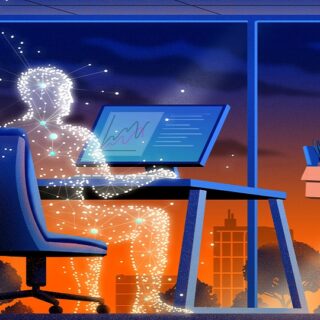
After World War II, Japan imported many different ideas from America.
One of them was that “a bread diet is better for health.” At that time, it was widely advertised that eating rice makes people stupid.
Here is what Japanese scientists, supported even by the Japanese government, claimed at the time:
“…The character of rice eaters and wheat eaters is naturally different. While the former believe that people eat because they exist, the latter believe that people exist because they eat. This difference in opinion is the result of eating different foods. While the former are resigned and passive, the latter are progressive and active. …[Since rice is naturally delicious and brings satisfaction to the one who eats it], such a person easily gets used to this way of life and loses the will to be active.
…[People who eat wheat] find it unpalatable in itself, and this makes them want better, gives them an impetus to action and a desire for progress. Their desires increase, they need more and more varied food. …This need to first turn wheat into wheat flour, and then add other ingredients such as meat and dairy products, led to many innovations that created today’s wheat-based food culture.
…The relative ease of the rice diet deprives people of the ability to reason, think, and maneuver. The development of science becomes impossible. Parents who feed their children exclusively white rice make idiots of them. …When a person eats rice, his brain works worse.
Comparing the Japanese with Westerners, we find that the former have an intelligence twenty percent lower than the latter. This is also evident from the fact that very few Japanese have received the Nobel Prize. …Japan should completely destroy its rice fields and strive for a total bread diet.”
Along with this propaganda, school meals have also changed: for many years, the Japanese government supplied only bread for school lunches instead of rice. As a result of all this, if in 1960 the average annual rice consumption per person was 118 kilograms, now it is only 61 kilograms. That is, rice consumption in Japan has decreased by about half in 57 years.
What’s wrong with that? In Japanese homes today, many people eat bread or pasta at least once a day, plus the Japanese eat a lot of meat. And most of this meat, wheat, and other products such as soybeans and corn are imported, mainly from the United States.
As a result, Japan’s self-sufficiency in food has decreased from 80 (in 1960) to 39 percent. The United States is also trying to force Japan to increase its rice imports — not because the Japanese themselves need it, but only because the United States has a surplus of it.
In addition to all this, a “canard” was launched that Japan supposedly ranks first in the world in the use of chemicals in agriculture. According to a 2004 OECD (Organization for Economic Cooperation and Development) survey, Japanese farmers use almost 16 kg of chemicals per hectare, while US farmers use only 2 kg.
However, if we analyze the final product — the rice itself — we will find more traces of pesticides in the American rice. The reason is that according to the 1995 SPS Agreement on Food Safety, each country has the right to set its own safety standards. This allows American farmers to use more pesticides and insecticides after harvesting the rice. They remain on the grains and do not wash off, getting into the food. Whether the Japanese will be able to get out of this situation, time will tell.





